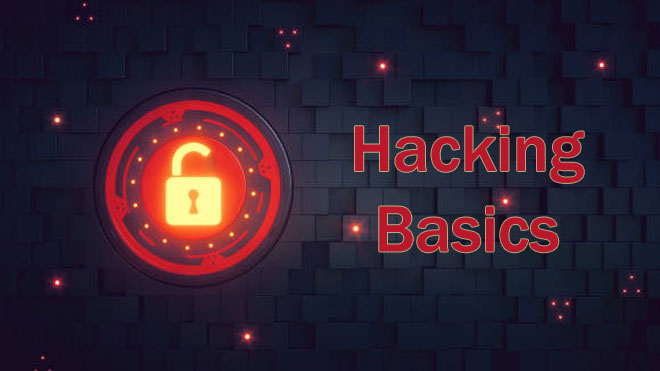What is Hacking
Hacking is the act of breaking into a computer system or network with malicious intent. Hacking can be for personal gain, to make money, or to cause damage and destruction. Hackers typically have some level of knowledge in information technology, programming, and coding in order to break into systems.
Top-end hackers tend to give a sign/clue after they have breached a tight system. The sign ranges from harmless popups or images such as voxel art, or something more serious.
Hacking Basics
Hacking is the deliberate act of exploiting a computer system, usually without authorization. Hacking is a form of cybercrime and can be done for different purposes, such as stealing information or causing damage.
The most common type of hacking is called phishing, which involves sending emails with links or attachments that lead to malware-infected websites. In order to avoid being hacked, it’s important to know how hackers operate and what they do.
Hackers often target websites that are not updated on a timely basis. Websites with poor implementation frameworks are also vulnerable
What are the Most Common Types of Hacking Attacks?
Hacking is the process of breaking into a computer system or network. It is a criminal offense in many jurisdictions to break into someone else’s computer system or network without permission. There are many different types of hacking attacks and they are categorized by their purpose.
There are three main categories of hacking attacks:
- Cyber espionage,
- Cybercrime,
- Cyberterrorism.
The most common type of cyber attack is cybercrime which is when hackers steal information from computers for personal gains like credit card numbers and bank account information. This can occur on a small or large scale.
Hackers tend to get a bad reputation, but some people specialize in hacking to repair holes in a system and make it better. Those hackers are usually recognized as white hat hackers.
How to Protect Yourself from Hacking Attacks
Cyberattacks are becoming more and more common. In the past few years, we have seen many hacking incidents that have caused significant damage to companies and institutions. One of the most recent examples is the Equifax data breach, which happened in 2024.
The Equifax hack was one of the most widespread breaches in history, having affected up to 143 million people in the US alone. The hackers were able to access a lot of personal information, including social security numbers, birth dates, addresses, and driver’s license numbers – all information that can be used to commit identity theft or other fraud.
Read Also: New Fraud Stitches also at Sparkasse and Disney
So how can you protect yourself from cyberattacks?
The first step is being aware of what constitutes an attack – for example, phishing emails or malware-infected websites.
The eye test is probably the easiest method if you are only using the computer for personal use. If you ever see something suspicious on a website, chances are the website is hacked and might steal your personal information.
Another popular method is installing antivirus software, however, this is not foolproof. You will need to still be diligent about what data you give/get on the computer. Furthermore, if sensitive data is stored on discarded hard drives, reformatting or electronically erasing a hard drive is not enough. Unfortunately, important financial records, confidential employee information, and internal documents could still be retrieved. The only way to completely remove all traces of data is through physical hard drive destruction.
Conclusion: Knowing About Hacks and How They Work Will Supercharge Your Cyber Security
The hacks that we see on a daily basis are becoming more and more sophisticated. Companies are now investing in cyber security to protect their data and intellectual property.
In order to stay ahead of the hackers, companies should use their knowledge of how hacks work to find vulnerabilities before they happen. This will help them prevent hackers from gaining access to their data and intellectual property.
Most Notable Cyber-Security Events of 2010
In the year 2010, there were many notable cyber-security events. These events have had a significant impact on the cybersecurity industry and are still being studied today.
The Stuxnet virus was discovered in 2010 and it is considered to be one of the most destructive malware ever created. It is believed to have been created by a team of hackers working for the United States and Israel. The virus was designed to target nuclear facilities in Iran and it was successful in shutting down production there for months. This event has been studied extensively by security experts who are still trying to learn more about its origins and how it works.
Operation Aurora is another famous one where Google had its backend infrastructure breached. A coordinated campaign by military hackers from China. It is the catalyst of why Google ceased to operate in China even in 2024.









